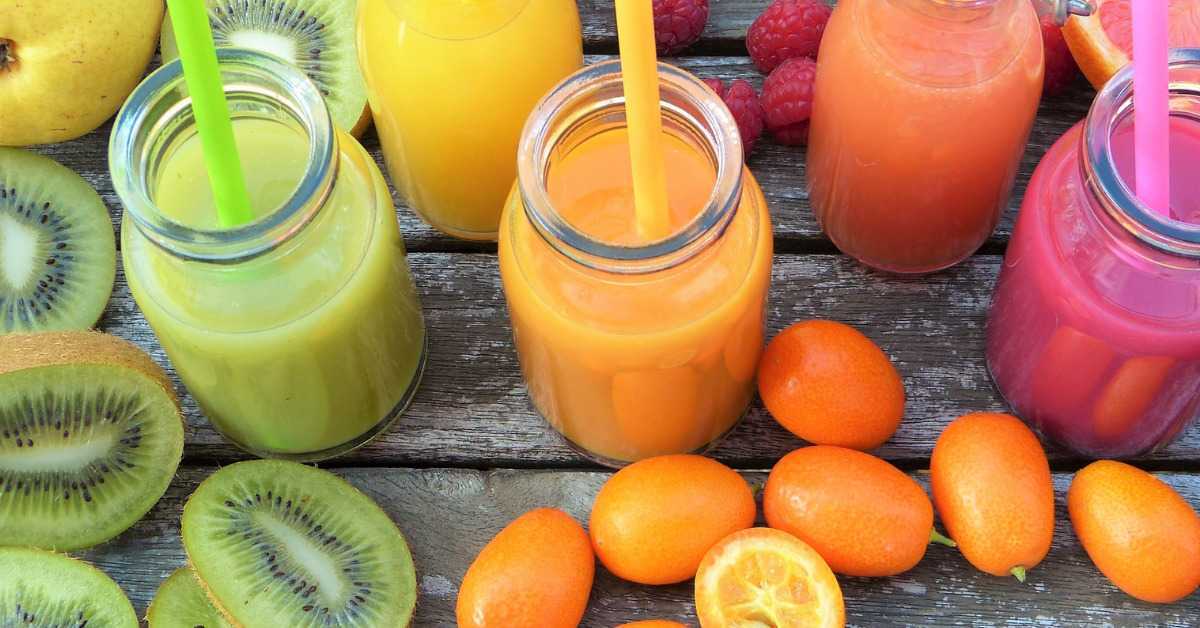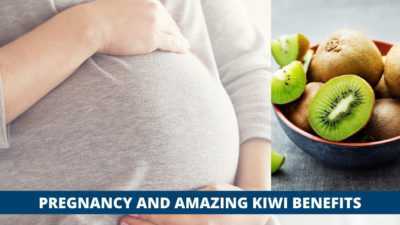You’re pregnant, and you’re correct to be extra cautious about what you eat specially if you are searching for Kiwi Benefits For Pregnancy. Congratulations! You’ve got a baby on the way to look after. The kiwifruit, sometimes known as Chinese gooseberry due to its origins in China, is high in vitamins and minerals.
Vitamins C, A, E, and K, as well as folate, potassium, iron, copper, magnesium, phosphorus, and choline, are all important. In addition, kiwi fruit is low in carbohydrates and fats (in comparison to many other fruits) and high in dietary fibre. If you eat kiwi while it’s firm to the touch (not rock-hard), you’ll be able to satisfy your sweet tooth, which has most likely gotten more demanding since you became pregnant.


How Safe is it to eat kiwi when I’m Pregnant?
You can eat kiwi when pregnant with no problems. In fact, it’s beneficial to your health! Only if you have a kiwi allergy should you avoid them. If you’re allergic to latex, this is more likely. So keep an eye out for allergy signs like skin rashes or swelling around the mouth, but if you’ve never had an allergic reaction to kiwi before, it’s OK to keep eating it. TO KNOW MORE, DISCUSS WITH AN EXPERT.
Benefits in the First, Second, and Third trimesters
Let’s take a look at the advantages of kiwi in each trimester.
Trimester one
Folate. With roughly 17 micrograms (mcg) of folate per kiwi ,this fruit is a super-source you should include in your diet. Folate (or its synthetic version, folic acid is vital in preventing neural tube abnormalities (NTSs) in your kid, though researchers aren’t sure how it works. NTDs appear 4 to 6 weeks after your last period, so it’s critical to start taking a supplement a month before you try to conceive.
A daily folic acid supplement of 400 mcg is recommended by the US Centers for Disease Control and Prevention, although a kiwi or two is also beneficial. Vitamin C is a powerful antioxidant. In one kiwi, you’ll find 64 milligrams (mg) of this beneficial vitamin.


Vitamin C is beneficial to mom because it aids iron absorption. Iron absorption is crucial for preventing anemia during and after pregnancy. Keeping your iron levels up is also beneficial to your baby. Iron aids in the production of neurotransmitters, which are essential for brain health. Calcium; It’s not only about teeth and bones. Calcium is also required for the proper development of your baby’s muscles and heart. Sliced kiwis contain 23.5 mg of calcium , so add them to your salads if you’re lactose intolerant and seeking for non-dairy calcium sources.
Second Trimester
Dietary fibre is a type of dietary fibre. Every kiwi has 2.07 grammes (g) of fibre, which will help you keep the smooth bowel motions you’ve nearly forgotten about. You’re not the only one in this situation: Constipation and diarrhea are both common bowel problems during pregnancy.
This is because the increased hormone levels slow digestion and relax your gut muscles. Zinc and vitamin A. Your demands for vitamin A, zinc, calcium, iron, iodine, and omega-3 fatty acids increase in the second trimester. If you eat a kiwi, you’ll meet some of these requirements. 2.76 mcg are found in the typical kiwifruit.
Third trimester
Content containing sugar. During this trimester, you may begin to hear about gestational diabetes. Kiwis have a lower glycemic index than many other fruits, with only roughly 1 teaspoon of glucose per 100 grammes. That means the fruit won’t cause a surge in your blood sugar.
However, it might just be sweet enough to satisfy that sweet tooth. Vitamin K is an antioxidant. Vitamin K is found in 27.8 mcg in the average fruit . This vitamin aids in blood clotting and improves healing. As you get closer to your due date, you’ll want to make sure your body gets enough of this vitamin. CONSULT A NUTRITIONIST RIGHT NOW THROUGH MARHAM.
Side Effects of Eating Kiwi while Pregnant
- Some people may develop an allergy to kiwi after eating it or if they already have a pollen or latex allergy. If you’re allergic to kiwis, don’t eat them.
- experience tongue and throat itching
- develop hives or other inflammation
- have stomach pain or vomit


The Takeaway
Returning to China, where the kiwi fruit was born: Its original Chinese name, mihoutao, refers to monkeys’ fondness for kiwis. I guess there’s more to “monkey see, monkey do” than meets the eye! Include this fruit in your diet to reap the advantages both during and after pregnancy. TO KNOW IN MORE DETAIL, IMMEDIATELY CONTACT A NUTRITIONIST.
Consult the Best Nutritionists in Pakistan
Book an appointment now, to answer all your queries. You can book an appointment with the top nutritionists in Pakistan through Marham by calling at Marham helpline: 0311-1222398 or by online booking facility through the website or Marham mobile app.
Can’t Find The App?
| Android | IOS |
|---|---|
  |
  |
FAQ’s
Is it OK to eat kiwi during pregnancy?
Eating kiwi while pregnant is safe. In fact, it’s beneficial to your health! The only exception is if you are allergic to kiwis. If you’re allergic to latex, this is more likely.
How many Kiwis should I eat a day while pregnant?
Kiwi is high in vitamin C and low in sugar and fat, making it an excellent choice for pregnant women. It also doesn’t have any cholesterol. The only time you should avoid it is if you have a history of gastritis or a hereditary sensitivity. It is totally fine to consume 2-3 kiwi fruits each day.
How can I improve my baby skin color during pregnancy?
Avocado is a fruit that is high in both vitamin C and vitamin E. Antioxidant properties are recognized for both of these vitamins. Vitamin C also aids in the reduction of inflammation and is required for the body’s collagen formation. Collagen formation, in turn, improves your baby’s skin tone.
Is kiwi fruit hot or cold?
When compared to oranges, kiwis have the same quantity of Vitamin C. Kiwis are a joy to the taste buds because they are classified as exotic fruits. They’re one of the best summer fruits since they offer a distinct cooling impact on the body and are also high in Vitamin E, potassium, and fibre.

